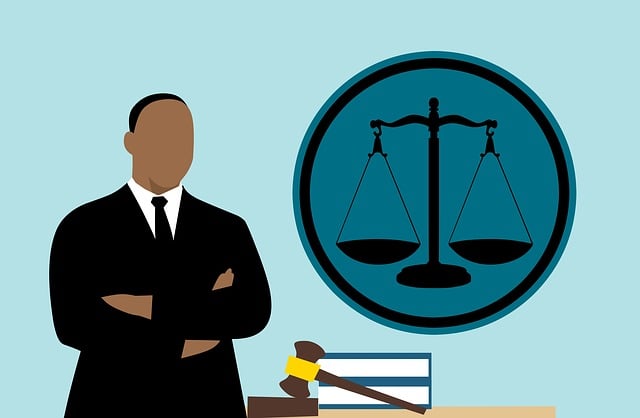Washington County criminal law prioritizes fairness and justice under Oregon state laws, covering misdemeanors to felonies. Defenses like self-defense and lack of intent empower individuals to challenge prosecution claims. Strict rules on evidence admissibility ensure reliability in court proceedings, with lawyers strategically preparing arguments. Navigating trial procedures guarantees defendants a fair trial, protecting their rights through motions, cross-examination, and legal arguments. Emphasis is placed on thorough investigations and effective communication to ensure justice.
“Unraveling Oregon’s criminal defense procedures is essential for anyone facing legal charges. This comprehensive guide delves into the intricate world of Washington County criminal law, offering a clear overview for those unfamiliar with the system. From understanding charged crimes and defenses to exploring evidence and trial procedures, we break down complex concepts. By navigating these steps, individuals can better protect their rights and make informed decisions. Familiarize yourself with Oregon’s legal landscape, especially within Washington County, and be prepared to assert your defenses.”
- Washington County Criminal Law: An Overview
- Understanding Charged Crimes and Defenses
- The Role of Evidence in Oregon Trials
- Navigating Trial Procedures and Rights
Washington County Criminal Law: An Overview

In Washington County, Oregon, the criminal legal procedures are designed to ensure fairness and justice for all individuals accused of crimes. The county’s criminal law system operates within the broader framework of Oregon state laws, offering a range of defenses and rights to those facing charges. Understanding these procedures is crucial for both defendants and their legal representatives.
Washington County’s approach emphasizes a balanced application of the law, with a focus on protecting the rights of the accused while also upholding public safety. The county’s courts handle various criminal cases, from misdemeanors to felonies, each requiring specific legal strategies and defenses. Knowledge of local criminal law, including relevant statutes and case precedents, is essential for navigating these legal proceedings effectively.
Understanding Charged Crimes and Defenses

In Oregon, including Washington County, charged crimes are categorized into different types based on their severity. Understanding these classifications is crucial for anyone navigating the state’s criminal defense legal procedures. Misdemeanors and felonies are two primary divisions, with numerous subcategories under each. For instance, misdemeanors can range from minor traffic violations to more serious offenses like assault or theft. Felonies, on the other hand, encompass crimes such as murder, robbery, and drug trafficking, which carry significantly heavier penalties.
Defenses play a pivotal role in criminal cases, offering individuals avenues to challenge the prosecution’s case or mitigate their legal liability. Common defenses in Washington County criminal law include self-defense, lack of intent (or mens rea), and insufficient evidence. The burden of proof lies with the prosecution, who must demonstrate beyond a reasonable doubt that the accused committed the crime. Understanding both charged crimes and available defenses is essential for anyone facing legal repercussions under Oregon’s criminal code.
The Role of Evidence in Oregon Trials

In Oregon, the presentation and evaluation of evidence play a pivotal role in criminal trials, especially in Washington County criminal law cases. Prosecutors and defendants alike must adhere to strict rules governing admissibility, ensuring fairness and reliability in the judicial process. Evidence can include physical objects, documents, expert testimony, witness statements, and digital media. To be admitted, it must meet certain criteria, such as relevance, authenticity, and trustworthiness. The judge acts as a gatekeeper, carefully considering each piece of evidence before allowing it to be presented to the jury.
Understanding the weight and admissibility of evidence is crucial for both parties. Oregon’s rules of evidence are designed to prevent unfair prejudice, ensure accuracy, and promote just outcomes. In Washington County criminal law cases, this means that every piece of evidence offered must contribute meaningfully to the fact-finding process while maintaining a fair trial environment. Lawyers on both sides meticulously prepare and argue for or against the admissibility of evidence, shaping the narrative and potentially altering the course of a trial.
Navigating Trial Procedures and Rights

Navigating Oregon’s trial procedures is a crucial aspect of Washington County criminal law. Defendants are entitled to a fair and impartial trial, where they can present their defense and challenge the prosecution’s evidence. The process begins with pretrial hearings, allowing attorneys to argue motions and ensure their client’s rights are protected. This includes the right to confront witnesses, access to evidence, and the ability to inspect and challenge any potential bias or irregularities in the case.
During trial, defendants have the opportunity to cross-examine witnesses, present their own evidence, and make legal arguments. The judge ensures procedural fairness, instructing the jury on the law and guiding them through the evidence. Oregon’s criminal defense procedures prioritize a thorough investigation, effective communication between attorney and client, and adherence to constitutional rights, ensuring a just outcome in every case.






